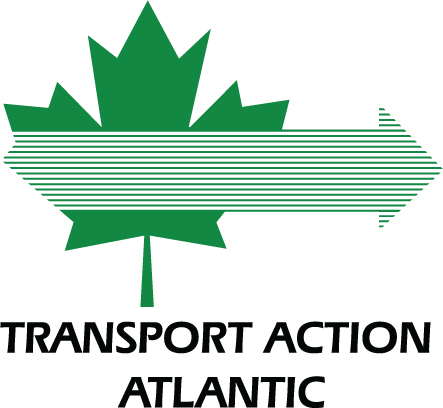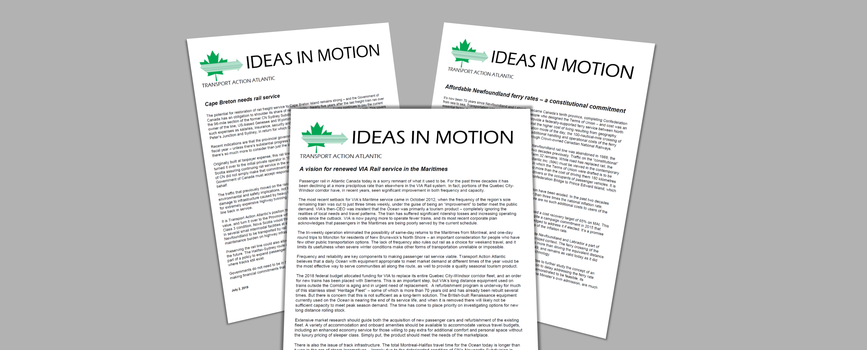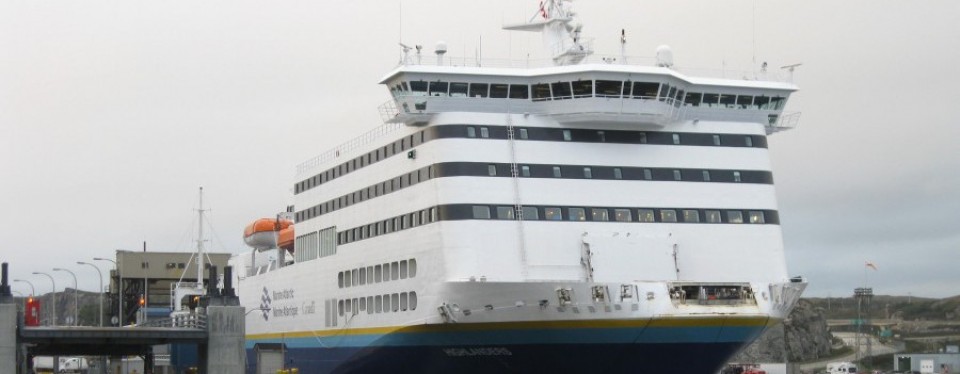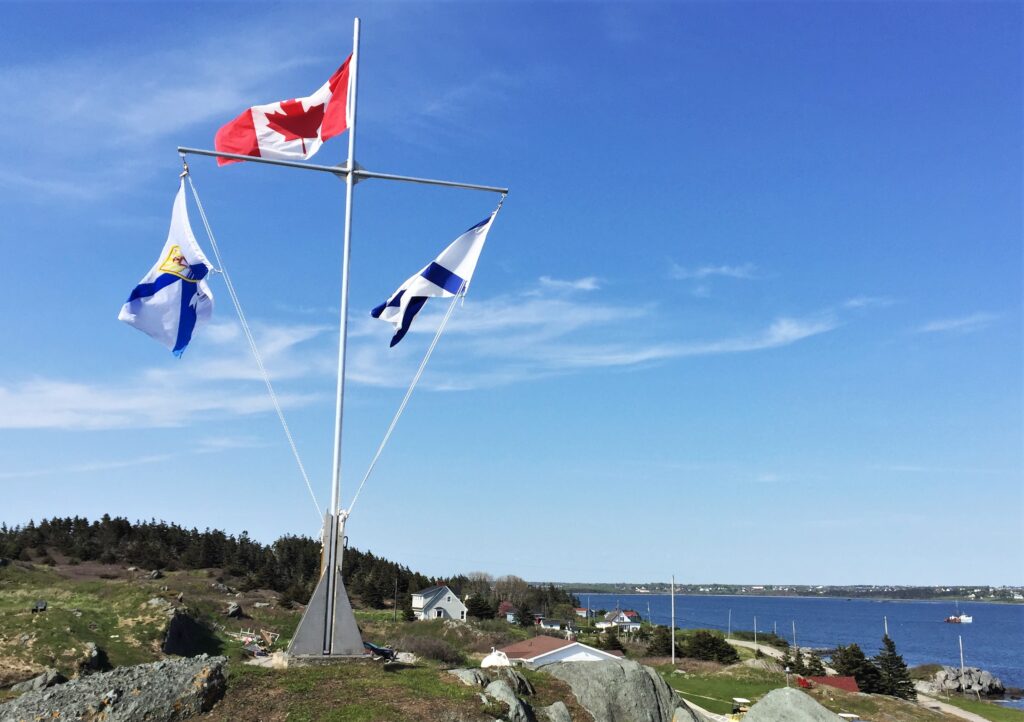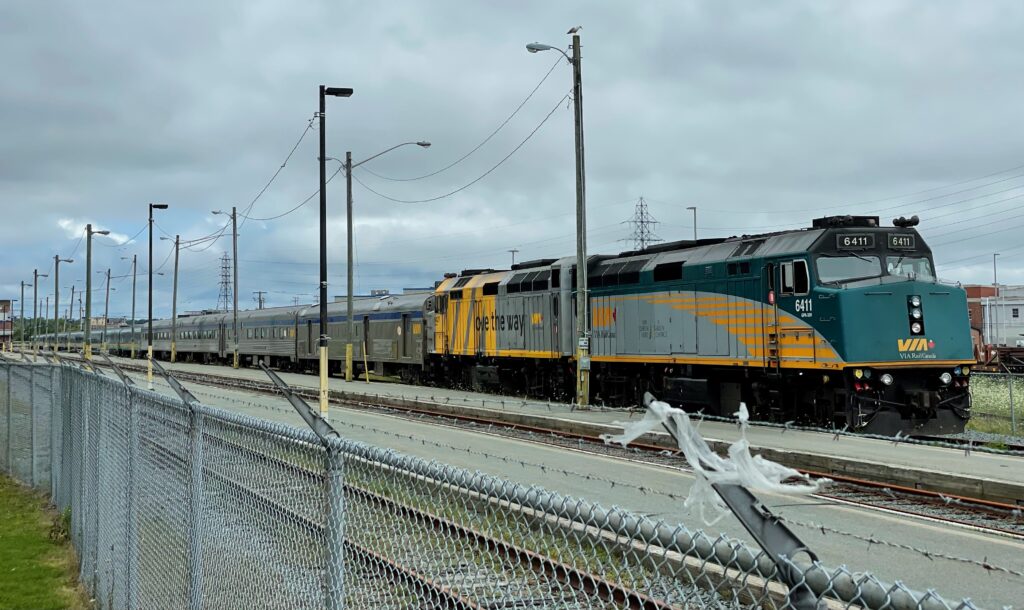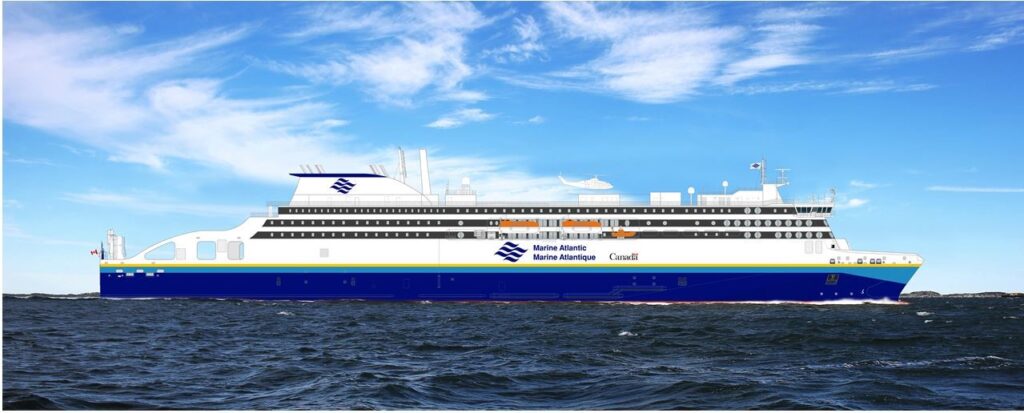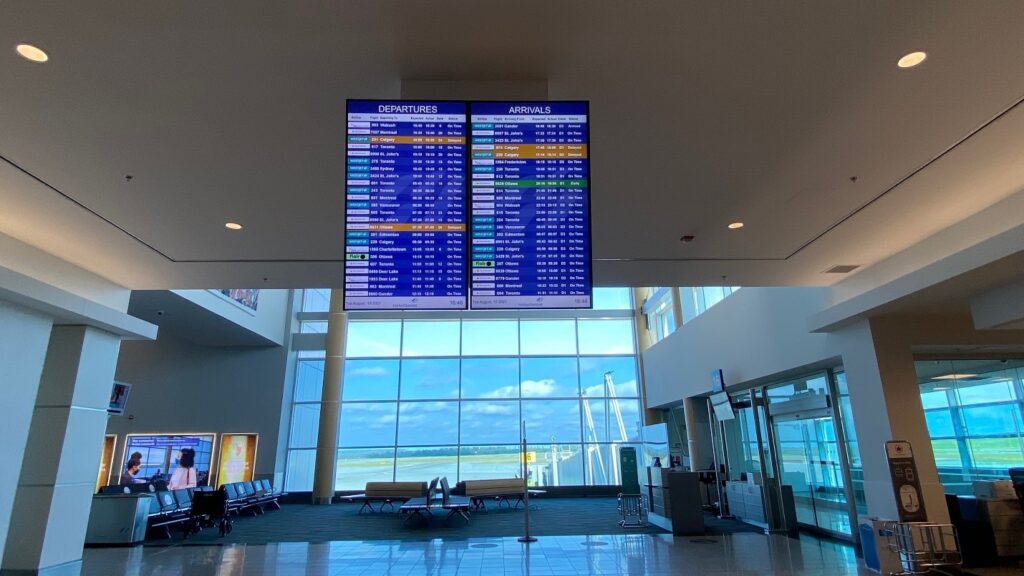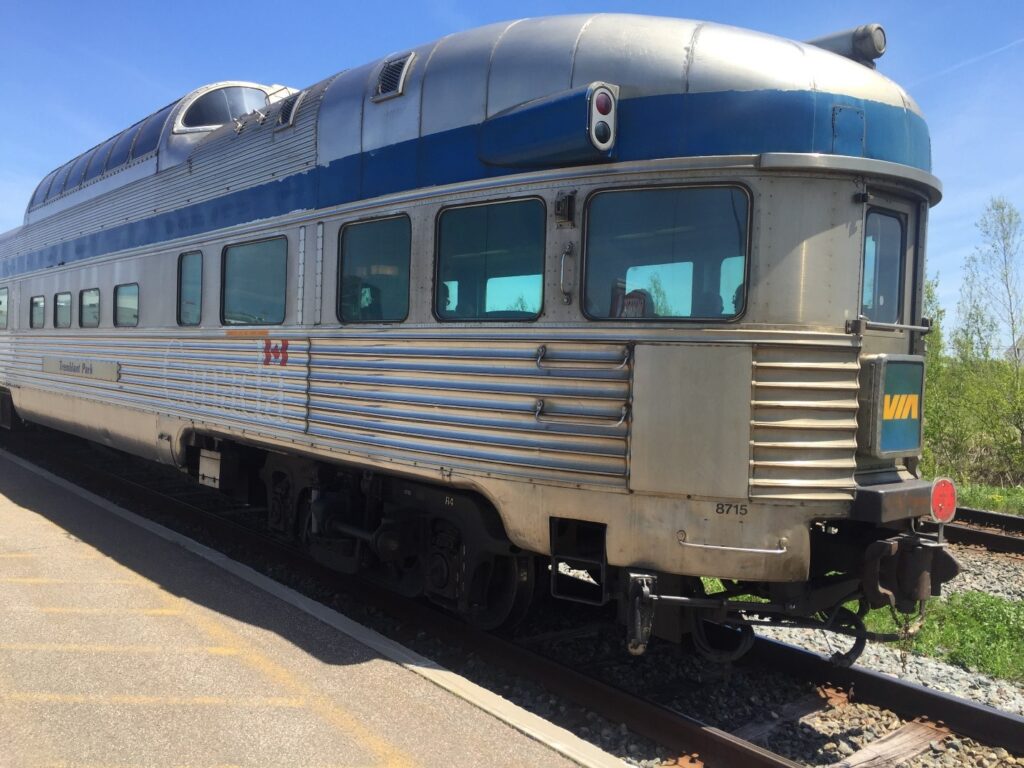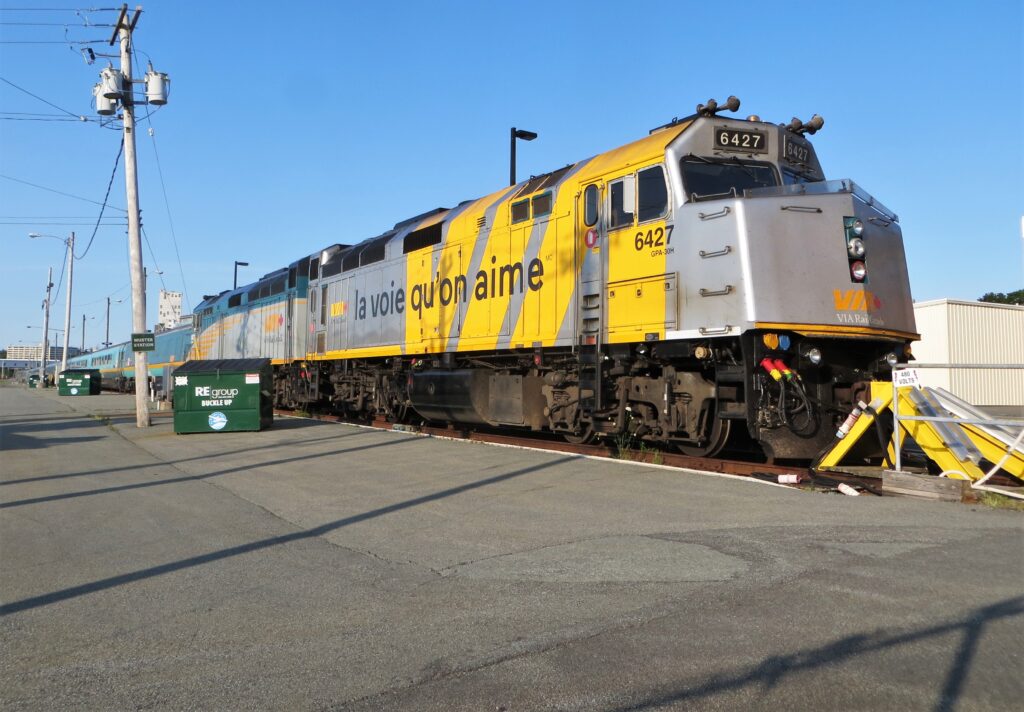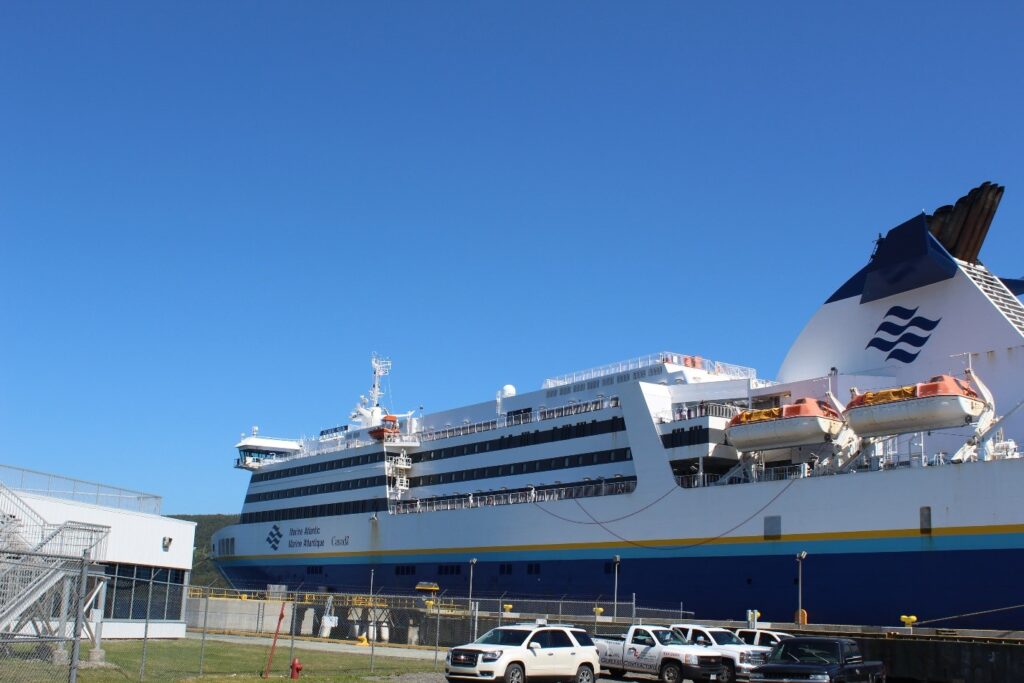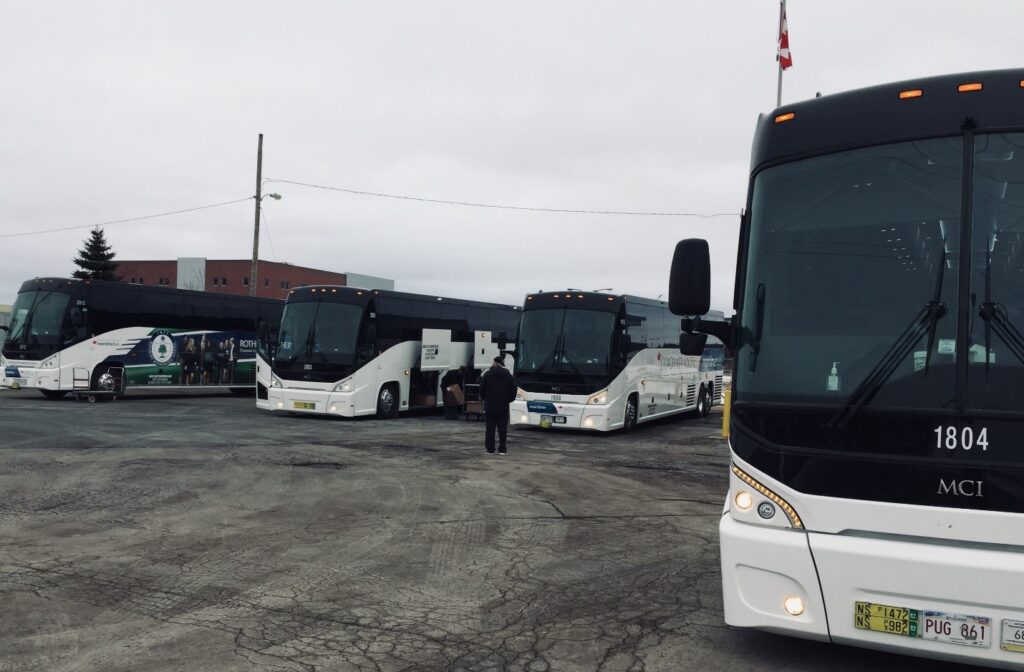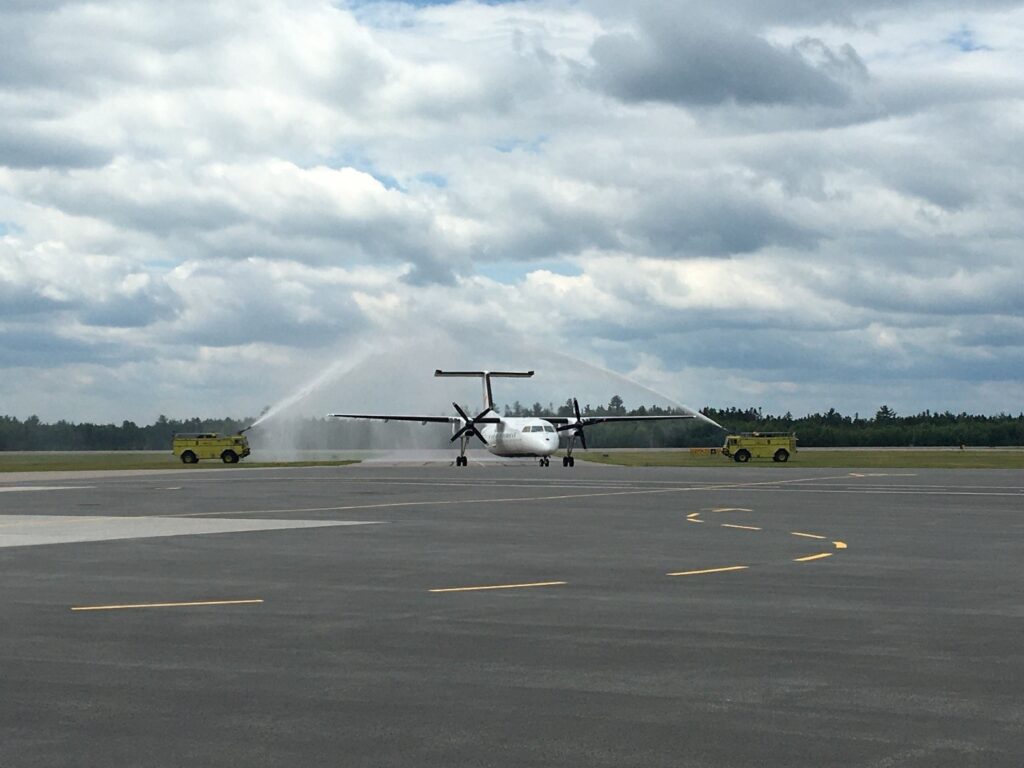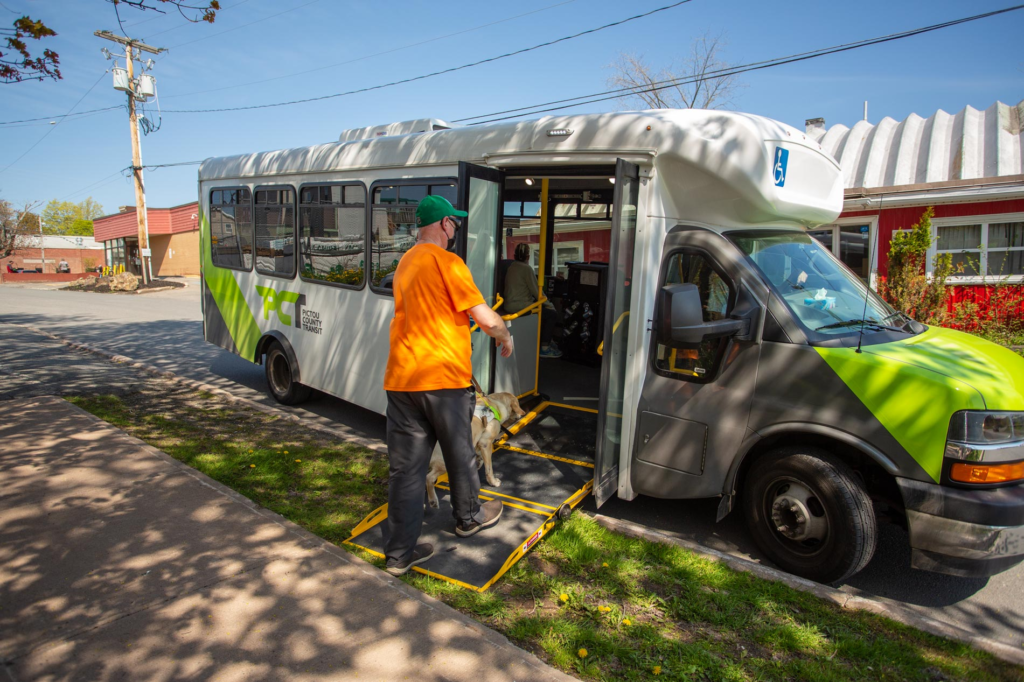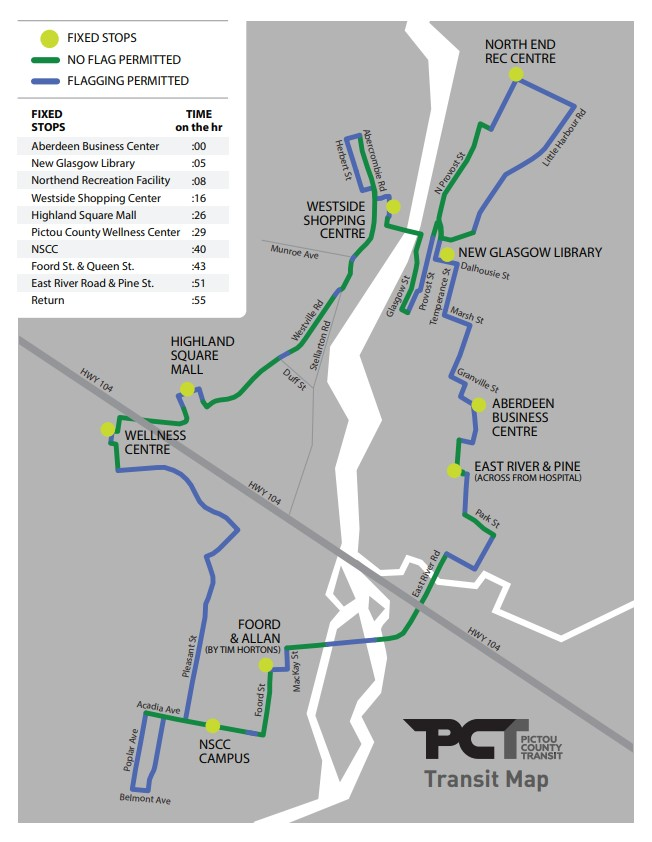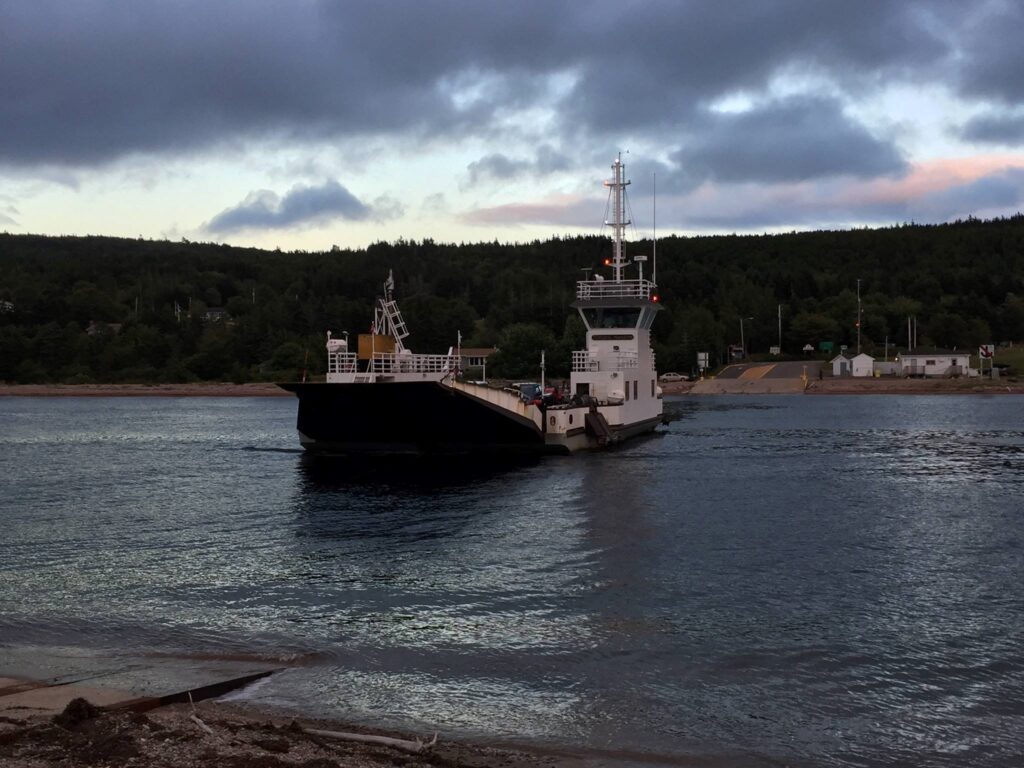Welcome to the October edition of Atlantic Transport News!
Here’s a look at what you’ll find in this edition:
- A new Liberal champion for public transportation?
- Nova Scotia set to completely abolish highway tolls
- No immediate effects on transportation as 4th COVID wave hits region
- Campobello seasonal ferry extended again, but no long-term fix in sight
- NL provincial ferry acquisition panned by Auditor General
A NEW LIBERAL CHAMPION FOR PUBLIC TRANSPORTATION?

It’s most unusual after an election for MPs on the government side to comment on any hopes they might have for a cabinet post. Even those who may have good reason to anticipate a call from the PMO would normally be reluctant to talk about it to anyone – much less the media. But Jenica Atwin, who narrowly pulled off a second electoral victory in Fredericton after switching sides from the Green Party to the Liberals, has never been shy about speaking her mind. In an interview with the Daily Gleaner just days after tabulation of mail-in ballots confirmed her win, she made her aspirations abundantly clear.
When asked by journalist John Chilibeck, she did not hesitate. “I would love the post of status of women, or families and housing,” she said, adding that she has a lot of concerns about the environment and transportation, and her desire to upgrade Canada’s rail system is one reason she’d jump at the opportunity to be transport minister. Whether Ms. Atwin was promised a reward for switching her allegiance we may never know, but some political pundits are suggesting that just might be the case.
Significantly, she made it clear in the Gleaner interview that she hasn’t lost any of her enthusiasm for passenger rail – despite being silent on the subject since joining the Liberals. She said that she plans to take the train to Ottawa for her swearing in ceremony expected sometime in November, just as she did after being first elected in 2019. This time she thinks that instead of driving to Moncton to catch the train she may drive to Rivière-du-Loup to avoid the snail’s pace rail journey through northern New Brunswick, even though it will not get her to Parliament Hill any earlier, and would mean boarding in dead of night.
In any event, it would seem there may now be a strong and effective voice for sustainable transportation within the Atlantic Liberal caucus. Ms. Atwin says she’s really passionate about high-speed rail and electrifying bus fleets around the country. While it may be questionable whether high-speed rail would be practical in this thinly-populated region, a return to the much faster and more frequent schedules of 25 years ago would by itself represent significant progress.
“I think that’s the way we go after greenhouse gas emissions, and that’s the way we transform our cities to be more accessible to people,” she said. “I think it’s one we don’t (see as) having a big impact on the environment, but I absolutely know it does.”
-Ted Bartlett
NOVA SCOTIA SET TO COMPLETELY ABOLISH HIGHWAY TOLLS
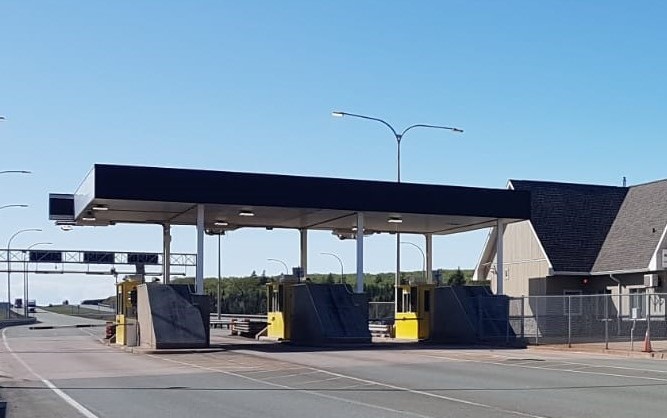
Nova Scotia’s only toll highway is apparently going to be free of charge to all users in the near future. The 45-kilometre Cobequid Pass section of Highway 104 between Oxford and Masstown has had a toll plaza since it was completed as a public-private partnership in 1997. Passenger autos are currently charged $4.00, while commercial and other vehicles pay based on the number of axles.
In this year’s provincial election campaign, the Liberals dusted off an earlier unfulfilled promise to grant free passage to passenger autos bearing Nova Scotia licence plates. But the victorious PC government of Premier Tim Houston is evidently planning to go much farther.
The mandate letter to Public Works Minister Kim Masland reads, in part “As Minister of Public Works, you will…remove the tolls on the Cobequid Pass, starting the process immediately.”
No definite timeline for actual closing and removal of the toll booths has been spelled out, but the announcement will undoubtedly come as good news for the commercial trucking industry, which has continually maintained that the Trans Canada Highway should be completely free to all users. It will not be so welcome to advocates for sustainable transportation, who hold the view that those who use the roads – and particularly vehicles that account for the major portion of maintenance costs – should pay a larger share than is currently collected through fuel taxes and vehicle registration fees.
NO IMMEDIATE EFFECTS ON TRANSPORTATION AS 4th COVID WAVE HITS REGION
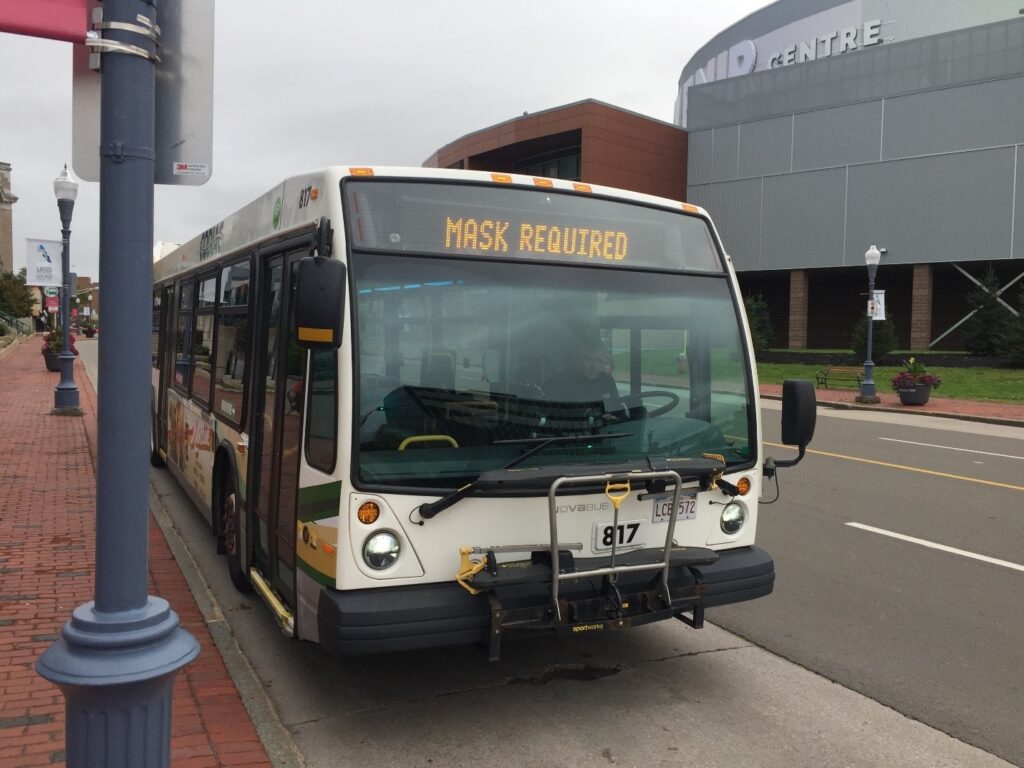
Public health authorities say it was not unexpected, but the fourth wave of the COVID-19 pandemic hit Atlantic Canada with a vengeance in September, and rising case numbers continued as the calendar turned into October. The rapidly growing active caseload in New Brunswick was particularly alarming, with the Province acting quickly to reinstate certain restrictions that had been lifted at the end of July. In a late-breaking development, a 14-day “circuit-breaker” set of restrictions has been imposed, effective at the start of the Thanksgiving weekend.
Also on the increase was the percentage of the region’s population that was fully vaccinated, which might help explain why there did not appear to be any immediate significant impact on the numbers of people using public transportation so far during this fourth wave. Despite its concerns, the NB government hasn’t imposed any occupancy limitations on public transit, and that decision came as a great relief to Greater Moncton’s Codiac Transpo.
“That would have been devastating for us, as we have shown a steady increase in our ridership numbers,” said operations manager Alex Grncarovski. He added that a slight decrease was noticed when the mask mandate was reintroduced, but it wasn’t really a serious concern. The effect of New Brunswick’s new round of restrictions announced on October 5 remains to be seen.
Essentially everywhere in the region, masking is compulsory for transit riders, and is likely to remain so for the foreseeable future.
Intercity busing tells a similar story. A snapshot from Maritime Bus shows 380 tickets were sold on Friday, October 1 – down slightly from 420 a week earlier. Owner Mike Cassidy sees that as encouraging given the circumstances, but adds that there’s a long road to travel to get the company back to where it was pre-pandemic. On a typical Friday in the fall of 2019 the norm would be about 650 passengers. Again, the effect of Thanksgiving weekend restrictions. which apply to all of New Brunswick, are still an unknown. Mr. Cassidy says these are very challenging times for the bus business, but his strategy is to stay in the marketplace, because people still need to travel, and time-sensitive packages need to be delivered.
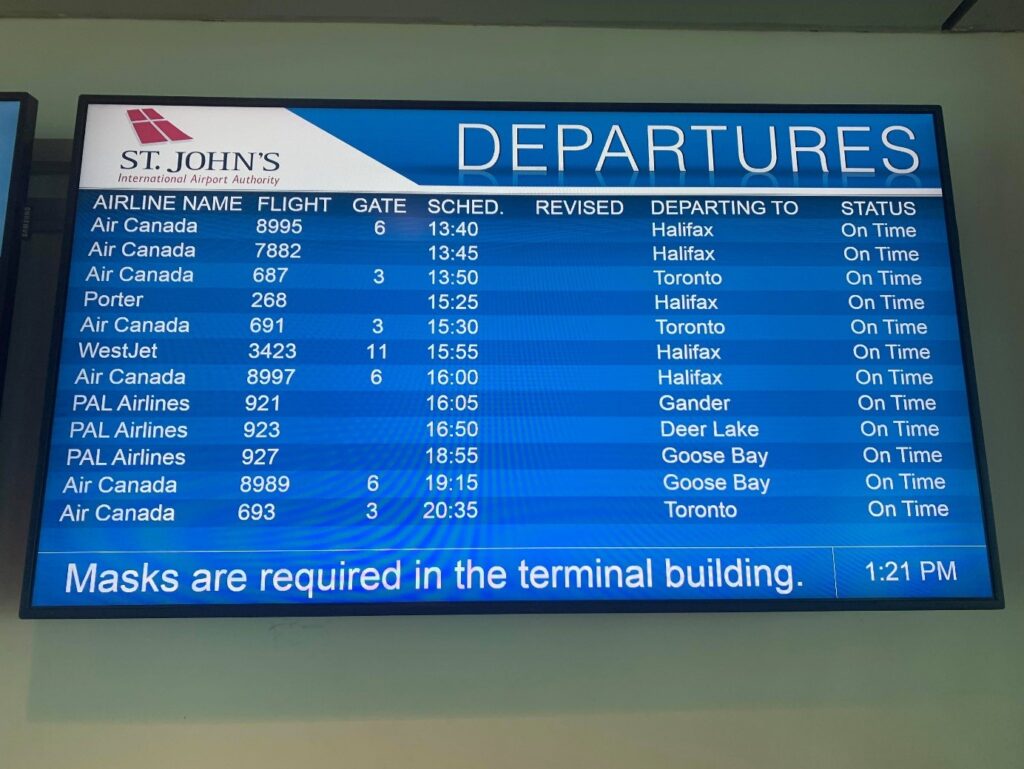
Meanwhile, air travel is also seeing the effects of the fourth wave. Janine Brown, director of business development for PAL Airlines, says they are certainly seeing the impact of the rising case numbers, and will continue to monitor demand. But for the time being, at least, there are no changes in the growing airline’s new services linking St. John’s and Deer Lake with Moncton, Fredericton and Ottawa.
At St. John’s International Airport, passenger numbers for August 2021 were three times what they were a year earlier, reaching an inbound and outbound total of 85,221. But that’s still a long way from the pre-pandemic level of 179,784 in August of 2019. Spokesperson Laura Thomas says they don’t yet have sufficient data to identify possible effects of the rising case numbers, but adds that COVID can change things on a dime and the airport is learning to adapt.
“We still anticipate a peak in Christmas travel and are cautiously optimistic that air service will continue to recover,” she said. “We are working closely with our airline partners and airport stakeholders to navigate any and all challenges.”
CAMPOBELLO SEASONAL FERRY EXTENDED AGAIN, BUT NO LONG-TERM FIX IN SIGHT
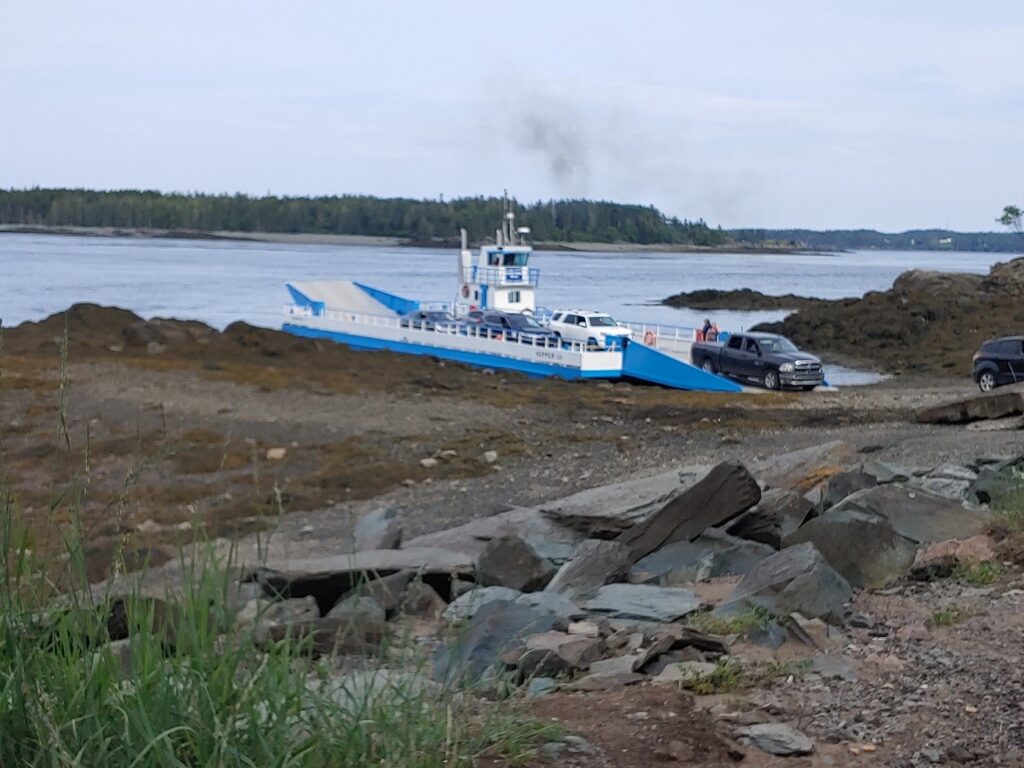
The 800 residents of New Brunswick’s Campobello Island are still no closer to a permanent solution for their long-term transportation challenges, despite an ongoing campaign that has drawn support from all corners of the political spectrum and attracted a fair share of national media attention. The island’s only year-round link to the rest of Canada involves using an international bridge to Lubec, Maine and two international border crossings – which have been effectively closed since the arrival of COVID-19.
The seasonal ferry to Deer Island NB continued to run during the past fall, winter and spring, and the provincial government is still footing the bill for extended operation until at least the end of October. But it remains a tenuous connection, by a vessel that was only designed for summer operating conditions, and the Province has made it pretty clear that this is just an interim measure that will end once the border reopens. The island will then once again be subject to the not-so-tender mercies of the US Homeland Security authorities – an obstacle which makes it a huge challenge for residents to access services other Canadians take for granted.
The federal and provincial governments don’t appear to be even discussing the issue, although it seems clear that this should be a shared responsibility. While the feds continue to look the other way, the Province is digging in its heels. In a recent interview with the Globe and Mail, NB Transportation Minister Jill Green showed scant sympathy for the islanders’ plight, insisting that they do have year-round transportation to the rest of Canada, even though it runs through another country.
“They actually have a linkage, they have a bridge,” Ms. Green told the newspaper. “The residents there have been very good at expressing their concerns … But I don’t have enough funds to take care of all things for all New Brunswickers, so I have to make some difficult decisions.”
Latest efforts in the campaign take the shape of a constitutional challenge, focused on the Canadian Charter of Rights and Freedoms, Sections 7-10 (regarding freedom of the person and protection against unreasonable search, seizure, forfeiture and arbitrary detention), in hopes that the federal government will provide year-round Canadian access as a response to these rights being routinely violated.
-with files from Justin Tinker
NL PROVINCIAL FERRY ACQUISITION PANNED BY AUDITOR GENERAL
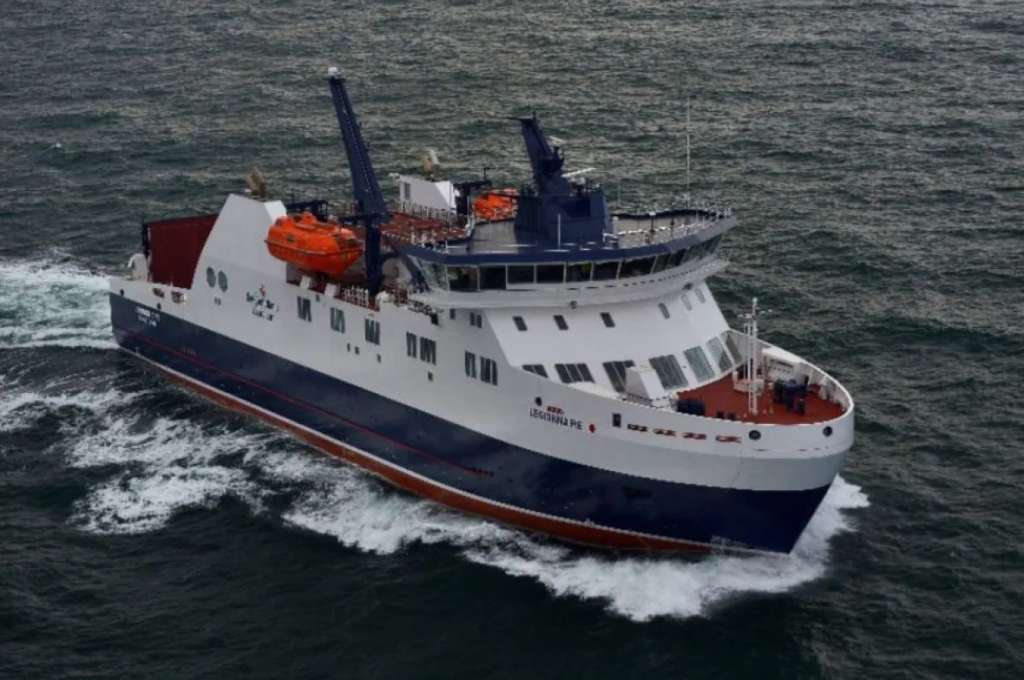
The process of purchasing two new vessels for Newfoundland and Labrador’s provincial ferry fleet has been handed a failing grade by Auditor General Denise Hanrahan. The audit began three years ago at the request of the Legislature’s public accounts committee, and was prompted not only by the acquisition of MV Veteran and MV Legionnaire, but by the two ships’ troubled performance record once they entered service beginning in 2015.
The just-released report blamed mismanagement by the Transportation department for “significant operational delays, service disruptions and substantial unplanned costs during the construction, operationalization and initial operations of the vessels.” The two ships were built in Romania, and the project cost taxpayers about $120 million, including terminal upgrades. They currently serve on the Bell Island and Fogo-Change Islands routes.
The report said there was a lack of proper oversight in both the construction of the two vessels, and the provision of appropriate docking facilities for their operation. It suggested too much reliance was placed on shipyard progress reports, rather than completing internal project management reviews. There were also problems identified with the adequacy of personnel training for the sophisticated new ships. The two ferries were out of service because of technical issues for a combined total of 607 days in their first three years, and equipment failures and vessel damages resulted in unplanned costs of about $4.2 million.
The report’s recommendations include the establishment of a project management process for all future fleet acquisitions, with attention paid to risk management, onsite supervision, document management and training. For its part, the department acknowledged that there were significant shortcomings in the project in question, but said that a new public procurement framework was already in place. The official response, included in the report, insisted it was “committed to continuous improvement in this area.”
